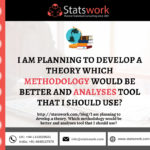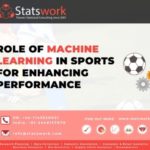What are the different sources of theory in accounting research
Social sciences are one of the booming fields that impact technology and science straight. Changes in innovation pave the way to newer social developments. Stating this, we are about to look at the basic theories involved in accounting.
Both sustainability and revolution haveseen the applications of accounting processes. Accounting Schaltegger and Burritt,(2017)is a reactive discipline, that has its key strategy to manage costs. The core of accounting is data analysis and manage financial assets and other price-related liabilities. Notehere that, accounting is a domain of theories. Meaning – there are so many contextual theories, deriving from many subdomains.
Let us now learn about the different sources of theories in accounting research. You might wonder why to study (Coetsee, 2010) about the sources of theories inside the domain….
So, here are4 solid reasons to learn accounting theories:
- If you hold a financial document, then its credibility is vital. To make proper use of your file, understanding the theory and using it with accuracy will be profitable.
- Reliability is the key to any financial or insurance-related areas. So, if you are a person, working or studying about the mentioned, then understanding the theories of accounting will be resourceful in your long-run.
- Are you planning to take a coursework statistical analysis project? Or are you in the search of crash courses in data analysis online? If you answered yes to either or both of the questions, then the theories of accounting should be a must-read for you.
- You might be a researcher looking for hypothesis ideas in accounting. Well, learning a few theories can fetch you great data. To put it straight, you can create positive empirical formulations and abstracts, based upon your understanding of a theoretical framework.
Henceforth, by understanding the concepts of accounting, its theories, sources and challenges, you will get to know the true face value of each concept. This will help you in real-time situations, where you can apply learned concepts, according to the demand. With no further delay, the following are the different sources of theories inside accounting research:
The 7 Important Theories of Accounting Research
The following are the major theoretical contributions and approaches (Azar, 2015)from various scholars in the field of accounting, management and economics.
- The 1st theory that we are about to look at is the Rational Choice Theory. From the minds of Hoque in 2010, this is a concept for the sole purpose of decision-making. Based on the principle of optimization, the rational choice theory will help in providing clear insights about why and how a few sections are selective in accounting scenarios. This theory forms from the basic contexts of finance, a branch of economics.
- Moving on, there is a theory that states the organizations that lack resources will establish relationship bonds with others, in the stance of acquiring the resources needed. This concept falls under the theory of Resource Dependent Theory. The concept was by Pfeffer and Salancik in 1978. The key focus here is about a firm’s survival of its rights and duties through resource maintenance and acquisition.
- Positive Accounting Theory puts forth the concept that every individual will try to maximize their utilities by managing accounting standards, only through self-interest. There might be concerns arising in the management due to organizational constraints such as size, bonus offers, and debt plans. This theory was from the expertise of Deegan in 2002 and is now applicable to major CSR studies.
- The 4th theory that we are about to see is the concept of Strategic Choice and Management Control, given by Garriga and Mele in 2004. This is a simple theory that informs about an individual’s adaptability to an environment. The theory centres upon the idea that every action of a member in an organization is an explanation for all the decision taken.
- This will be a theory that will be useful for you to understand how accounting is actionable in real-time. The Human Relation Theory emphasizes that aspects such as motivation, organizational structure, leadership positions, managerial dynamics, supervision controls and more, have a close relationship with the individual’s capability. This is a theory by Hopwood in 1979.
- The Contingency Theory of management accounting and control (Otley, 2016) is an important paradigm in any organizational fields. It states that the so-called ‘packages’ of management control is evolutionary and keeps changing.Yet, there should be a mechanistic model or approach that must focus on what and what not to use. Although this concept of ‘packaging’ has a few criticisms due to empirical absence, this theory has scope for future applications, when it takes specific organizations into account instead of a generalized one.
- Jensen and Meckling formed the Agency Theory of accounting in 1976. Taking the perspective of the principal and agent, this is a framework denoting an organizational process. Corporate Governance (CG) and Financial Reporting Quality (FRQ) uses this theory to understand an association of the former and latter.

These 7 theories fall under the positivistic approach (Kholeif, 2011) of accounting theories. There are also separate theories for the naturalistic perspectives andthe contextual or institutional references. The positivistic approach is widely discussed and hence is the dominant concept/paradigm in accounting.
Researchers in this perspective focus on developing the existing knowledge through scientific applications. This includes anything from statistical data analysis techniques to direct observation of cases. Even at times, reading instruments, assessments and questionnaires collect the best resources.
Do note that accounting is not a field that has its theories and hypotheses. This mainstream has incorporated the conceptual frameworks of several fields such as economics, statistics, sociology and even a few basic sciences. Regardless of its evolution, understanding these theories will be handy for many cost-related circumstances.
At present, machine learning and data analysis services helpfinancial sectors to emerge greatin the industry. But when supported with theories of accounting and management, a business will turn become more efficient!Accounting is one of the best subjects to learn, to grow and sustain profitably in any business. Irrespective of your domain, accounting theories will be paramount during your legal and compliance instances of the corporate world.
- Azar, N. (2015). Different Approaches and Theories in Accounting Research. https://doi.org/10.13140/RG.2.1.4401.6723
- Coetsee, D. (2010). The role of accounting theory in the development of accounting principles. Meditari Accountancy Research, 18(1), 1–16. https://doi.org/10.1108/10222529201000001
- Kholeif, A. (2011). The Positivistic Approach to Management Accounting: Recent Developments and Future Directions. In Review of Management Accounting Research (pp. 523–542). https://doi.org/10.1057/9780230353275_20
- Otley, D. (2016). The contingency theory of management accounting and control: 1980–2014. Management Accounting Research, 31, 45–62. https://doi.org/10.1016/j.mar.2016.02.001
- Schaltegger, S., & Burritt, R. (2017). Contemporary Environmental Accounting: Issues, Concepts and Practice. Retrieved from https://books.google.co.in/books?id=Sqo0DwAAQBAJ
[wce_code id=1]

 Previous Post
Previous Post Next Post
Next Post